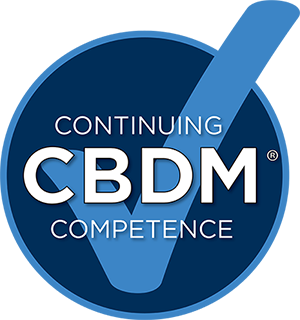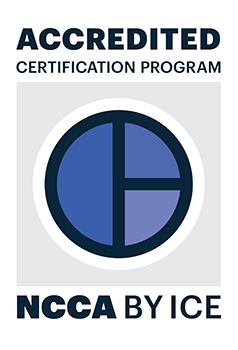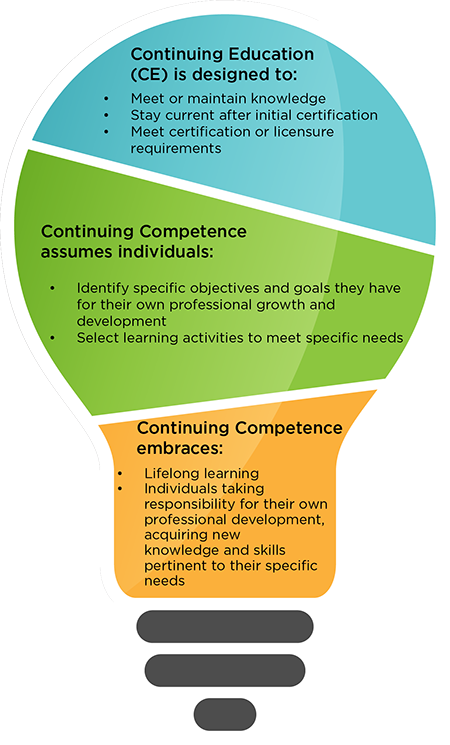Jump to:

Continuing Competence is defined as, "demonstrating specified levels of knowledge, skills, or abilities not only at the time of initial certification, but also throughout an individual's professional career." CBDM first introduced the concept of Continuing Competence in 2017 with articles in Nutrition & Foodservice Edge magazine and education sessions at live meetings.
In 2019, CBDM published competencies for Food and Nutrition Services employees and a task force was developed to explore a continuing competence program for CDM, CFPPs. The task force made recommendations to CBDM and in 2021, the Board voted to implement Phase I of a two-phase plan on June 1, 2023.
Phase I
All CDM, CFPPs will be asked to complete a Self-Assessment Tool, when they begin a new, three-year recertification period, beginning with those whose new recertification cycle starts June 1, 2023. This questionnaire is based on the content outline that is used for the CDM Credentialing Exam, the CDM, CFPP Scope of Practice, and our Practice Standards. Once it is completed, CDM, CFPPs will then receive a learning plan that makes suggestions about where to focus their education selections over the next three years.
Phase II
Phase II involves connecting CE choices to the learning plan. This will be reviewed for implementation down the road, and there is no timeline for implementation yet. CBDM will continue to provide updates as any new information becomes available.
View the video below and read the content available on this webpage to learn more about the Continuing Competence initiative.
Important Definitions
Competence:
The ability to perform a task, function, or role at a level that meets or exceeds prescribed standards in the work environment.
Competencies:
Observable behaviors that encompass the knowledge, skills, and personal characteristics that are at or above acceptable levels of performance in the work environment.
Continuing Competence (CC):
Demonstrating specified levels of knowledge, skills or abilities not only at the time of initial certification, but also throughout an individual’s professional career.
Continuing Competence in Certification Industry
There are certain competency requirements in the certification industry. Core or competency requirements defined for initial certification, reflect knowledge and skills required at the entry level. Competency requirements defined for more experienced or specialized credential holders change over time and are assessed through continuing competence programs.
Overall, continuing competence programs are an effective and well-recognized method of recertification. They provide a meaningful, relevant process that demonstrates currency in one's field.
WEBINAR- Continuing Competence and the CBDM Self-Assessment Tool: What You Need to Know
This webinar details the CBDM Continuing Competence Initiative and explains why this initiative is important for you as a foodservice professional. You will also view the actual Self-Assessment Tool with a live demonstration of how to complete it.
ANFP members who view this webinar and complete the quiz are eligible to receive 1.0 GEN CE for FREE! Note: You will need to "Purchase" the webinar for $0.
Why is this important?
- Keeping up knowledge and skills specific to one's goals and needs ensures that an individual delivers "best practice" results and performance.
- Continuing competence means greater professional credibility, with employers, surveyors, and within the foodservice department, resulting in increased potential for career advancement and promotion.
- Research shows that employee development increases profitability for employers.
- Continuing competence shows the ability to recognize and adapt to a changing industry.
Why the Continuing Competence Initiative?
The National Commission for Certifying Agencies (NCCA) created standards in 1977, updated in 2021, to ensure certification programs adhere to modern standards of practice for the certification industry. CBDM has been fully accredited since 1989, and joins an elite group of more than 130 organizations representing over 315 programs that have received and maintained NCCA accreditation.

NCCA Standards
NCCA requires that a certification program meets 24 standards with 113 elements. One of the standards addresses recertification, and one element of that standard states:
The certification program must have a definition of continuing competence that is consistent with the Commission's definition of continuing competence.
Associated commentary to support this indicates that recertification requirements can either measure and/or promote continued competence, which is defined as:
Demonstrating specified levels of knowledge, skills, or ability not only at the time of initial certification, but throughout an individual's professional career.

